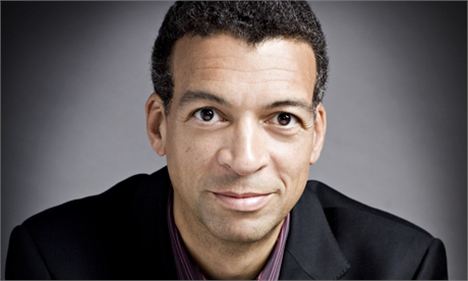WITH THE Alpine Symphony it was never a case of peaking too soon for Richard Strauss.
Riuckert’s Nachticher Gang, which preceded the Alpine Symphony after the interval, is a thoroughly ghoulish stagger through a nocturnal winter storm
The epic, final tone poem in his great sequence that took 'progamme music' to new heights (sic) was 15 years in gestation. This was from the first sketch in 1900 when he was 36 to premiere in 1915 – and all harked back to a teenage Strauss’s harrowing and exhilarating foray into the mountains he never forgot.
It shares a sunrise with (more famously) Also Sprach Zarathustra, already performed during the Strauss’s Voice celebration of the composer’s 150th birthday. This particular work begins and ends in night with all-too pictorial depictions in between of Alpine beauty, consolation, confusion and danger, climaxing in a great thunderstorm that employs colossal orchestral resources, including thunder and wind machines.
Hence, for this assault upon all the senses, the ultimate joining of forces in this latest collaborative season involving Manchester’s orchestras. Halle and BBC Philharmonic players joined together under the the Phil’s Chief Conductor Juanjo Mena and Halle leader Lyn Fletcher in a sublime performance – brass and woodwind excelling in a show of controlled power – that makes you wonder how the Alpine ever plummeted from critical favour.
But then such rehabilitation is the whole point of Strauss’s Voice, mixing as it does the showpiece orchestral works with others of less renown (last night that grandiose slab of Germanic pomp and circumstance, the Festliches Praludium, with its lashings of strings, brass and organ) and the 200 songs and more, many of which rarely get an airing.
Some of these are quite substantial treatments of overheated lyrics by 19th century German poets such as Richard Dehmel, Friedrich Schilling, Friedrich Ruckert and, inevitably, Goethe, each represented here in Four Songs With Orchestra.
Riuckert’s Nachticher Gang (it ironically translates as an Evening Stroll), which preceded the Alpine Symphony after the interval, is a thoroughly ghoulish stagger through a nocturnal winter storm, with our bereft hero lamenting at the end of every stanza 'Es muss doch zur Liebsten gehn!' ('There must be a way to my beloved one'). Baritone William Dazeley handled the role admirably despite being pitted against some furious, off-kilter orchestration (six horns, six percussionists, two flutes) foreshadowing Salome and Elektra.
Most enthralling of the other three songs – all sung by Roderick Williams (pictured) – was the Pilgrim’s Morning Song, a surging celebration of positive virtues from its opening clarion call. Goethe dedicated the text to Lila (Luise von Ziegler), a devout Darmstadt court lady, famous for being accompanied everywhere by a lamb on a pink ribbon.
Another discovery I wouldn’t have made but for Strauss’s Voice.
Strauss’s Voice, Until March 8 2014. Bridgewater Hall, Lower Mosley Street, Manchester, M2 3WS. Tickets cost £10-£38 and can be booked at www.bridgewater-hall.co.uk.
For full details of all concerts and other events visit www.straussvoice.com.















